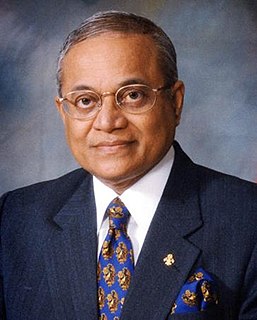A Quote by Morris Raphael Cohen
Law must be viewed as a formless mass of isolated decisions.
Related Quotes
People must be confident that a judge's decisions are determined by the law and only the law. He must be faithful to the Constitution and statutes passed by Congress. Fidelity to the Constitution and the law has been the cornerstone of my life and the hallmark of the kind of judge I have tried to be.
The Second Wave Society is industrial and based on mass production, mass distribution, mass consumption, mass education, mass media, mass recreation, mass entertainment, and weapons of mass destruction. You combine those things with standardization, centralization, concentration, and synchronization, and you wind up with a style of organization we call bureaucracy.
We believe that climate change must be viewed not only as a danger to natural systems, but also as a direct threat to human survival and well-being. We are convinced that this negotiation process must not be viewed as a traditional series of governmental trade-offs, but as an urgent international effort to safeguard human lives, homes, rights and livelihoods.
If we decide rightly what to do, or use a correct procedure for making such decisions, that has to be because the decisions or the procedure rest on good reasons, and these reasons consist in the apprehension of truths about what we ought to do. Because these truths must constitute reasons for our decisions, and because in the rational order, reasons must always precede the decisions based on them, the truth conditions of claims about what we ought to cannot be reduced to, or constructed out of, decisions about what to do, or procedures for making such decisions.
Poverty is a weapon of mass destruction. Joblessness is a weapon of mass destruction, homelessness, a weapon of mass destruction... racism, a weapon of mass destruction, fear, a weapon of mass destruction. We must disarm these weapons and renew our commitment to quality public schools and dedicated teachers and good housing and quality health care and decent jobs and stronger neighborhoods.
Thus, if there exists a law which sanctions slavery or monopoly, oppression or robbery, in any form whatever, it must not even be mentioned. For how can it be mentioned without damaging the respect which it inspires? Still further, morality and political economy must be taught from the point of view of this law; from the supposition that it must be a just law merely because it is a law. Another effect of this tragic perversion of the law is that it gives an exaggerated importance to political passions and conflicts, and to politics in general.








































